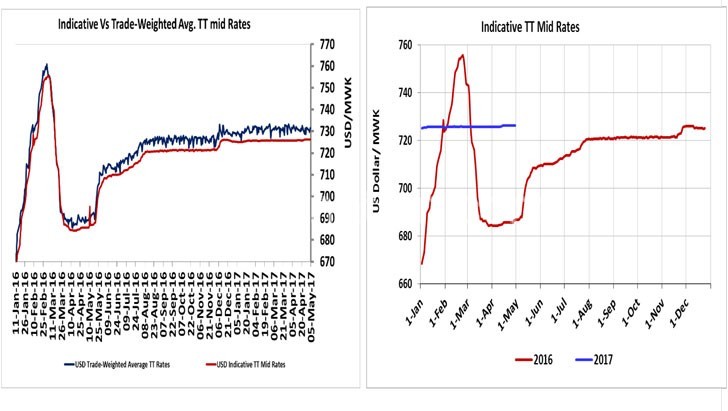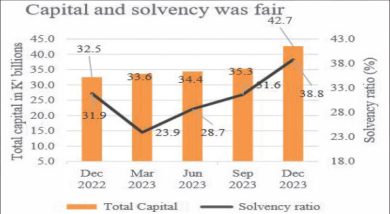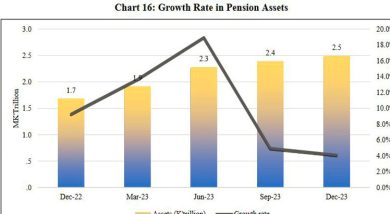Kwacha on steady path: Trading at around K734 for past 5 months
The Malawi kwacha is on a steady path with latest foreign exchange rates from the Reserve Bank of Malawi (RBM) showing the local unit has for the past five months been trading at K734 to the dollar.
RBM figures indicate that the local unit has managed to hold on to the current position since December last year. The kwacha also remained steady at K730 to the dollar in the months of November, October and September last year.
Malawi normally experiences significant seasonal volatility in its foreign exchange inflows with earnings from tobacco exports concentrated during the April to August period.
However, foreign exchange market dealers have attributed the steady kwacha to, among others, declining demand for foreign currency and lower buying power among foreign exchange buyers and businesses.
In his State of the Nation Address delivered in Parliament last Friday, President Peter Mutharika attributed the stability of the kwacha to stronger fiscal management together with tight monetary policies.
He said the stable kwacha has since had a positive impact on the country’s foreign exchange reserves.
“Mr. Speaker, Sir, although the country is coming from a period of drought which heightened food imports, foreign exchange reserves have been maintained at three months of import cover as at end February, 2017.
“Stronger fiscal management together with tight monetary policies, have anchored the stability of the kwacha in 2016 and it is anticipated that the situation will remain the same in 2017,” said Mutharika on Friday.
In an interview, economic analyst Cosmas Chigwe said he expects the kwacha to remain stable in the foreseeable future, adding that the tobacco marketing season impact will be minimal.
So far, with the on-set of the tobacco sales, the kwacha exchange rate has settled at between K725 and K735.
But Chigwe said: “Looking at the last two years, the tobacco marketing season has had very little impact on the exchange rate. As a matter of fact, it depreciated by about five percent during the tobacco selling season last year.
“With continuously dwindling figures from the tobacco market and growing forex needs for the country, the impact of the tobacco selling season these days is largely driven by speculation.”
While welcoming the kwacha and foreign exchange reserve gains as positive, economics stastician Alick Nyasulu expressed worry with the unavailability of the foreign exchange on the market.
“It would be impractical to say the kwacha has found its true value unless its foreign exchange is easily accessible in banks for those that want it.
“We have had low exchange rates on paper, but bank customers have to wait for some weeks to access it. We still have strong exchange controls and this makes it difficult to call this a true value from recent history,” he said.
Nyasulu said the best proxy for the true value of the kwacha is the parallel market, where, though it is illegal, it operates under principles of demand and supply.





